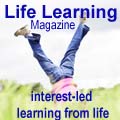 |
So their contribution to life, since it’s not authentic, is often minimal. Even if they achieve a lot, it isn’t coming from flow, but from being forced to “make something” of themselves to compensate for being crushed. Needless to say, midlife crisis can be the result, entailing not only career but also relationship problems, since no one can relate well if they are operating only from a persona instead of their essential self. And, of course, conflict with their own children is likely to be an issue, since they won’t know how to value the individuality of their children because they weren’t recipients of such themselves. Also, when discipline involves punishment – often mistakenly called consequences – a state of anxiety develops in a child. This can show up in a variety of symptoms, both physical and psychological, which only become magnified with time unless they are addressed at their root. We have so many disturbed kids, and hence disturbed adults, in our society! And many who aren’t exactly disturbed aren’t truly joyous. Whenever we are forced to betray our true feelings and desires, which we so easily do as kids since we need the approval of our parents, feeling anxious is inevitable. Not just anxious about situations and events, but about our very being. And it doesn’t go away, even when we address the symptoms. It just goes underground. It makes life in some measure indigestible. There’s just an uncomfortable, ill-at-ease feeling pretty much all the time. We cover it up, but it doesn’t go away. It eats at us, producing a sense of dissatisfaction. Such anxiety about ourselves tends toward self-doubt. However, self-doubt is often covered over by a driven sense of ego. We constantly feel we have to “prove” ourselves. Most of the anxiety people suffer later in life comes from being made to be anxious about pleasing others when they were young. Again, it’s this that produces the phenomenon of midlife crisis, when a person awakens to how their life has been a betrayal of their authentic being. Q. You say threats, punishment, and timeouts are off the table. What’s your solution to controlling kids? A: It isn’t about controlling kids, but about facilitating their own learning. This is best done by example – by a family ethic, such as a routine of brushing our teeth at bedtime, putting our things away, making our beds, hanging our towels up. Learning is also encouraged by not intervening to prevent consequences teaching the child – unless there’s risk to life or limb, naturally. Consequences aren’t “given,” as I so often hear parents say: “I have to give you a consequence.” That’s not a consequence; it’s a penalty. Consequences are the natural result of our actions, the flow of cause and effect. If you’re late, except in an emergency, after a time or two you miss the party; the parent doesn’t keep on rescuing you. Rehearsing things that need to be learned is important. This is where a parent can really encourage a child to become organized and to feel pleased with his ability to be so. In my book, I talk about role playing things like getting clothes and the child’s school bag ready so as not to miss the school bus. We practice it over and over until it’s routine. Not in a forced way, but playfully, making it an adventure. Q: Some parenting experts would say that not disciplining a child is a lazy approach to parenting. How do you feel about this? A: Discipline, punishment, timeouts – these are the lazy way. Oh, and repeatedly saying, “If I’ve told you once, I’ve told you a hundred times...don’t you ever listen?” You know the kind of routine things parents say. These are rote reactions, not authentic, on-the-spot, present-moment responses that truly fit the situation. Reactivity is laziness. Creative response requires a great deal of hands-on effort. To raise a child to be true to herself requires being truly tuned in to the child, listening deeply beyond the words, hearing the heart. It also requires great personal self-confrontation to address the issues the child is triggering within us that are causing us to react. This is an often painful, difficult task. This is real hands-on parenting, attentive in every moment, and ever watchful to enable flourishing but not to control and overpower. Q: Every parent wants the golden key to raising a well-behaved child. What are the main tips you give parents? A: Set aside your own agenda is my first tip. Get in touch with your child’s agenda. Find out who this person really is. They will show you if you open your eyes and ears. Then work with them cooperatively. Address the needs of the whole family, helping them see how they fit into a system – how they can connect deeply, and yet not lose themselves in the relationship. Parenting consciously is about helping a child discover and develop resilience, creativity, character. It’s all in there – our task is to provide a nurturing environment that draws it out. This is how a self-disciplined life develops. In the story of The Little Prince, the little fellow points out that roses are not only beautiful, but they also have thorns. By thorns, he’s referring to our boundaries. So this is not permissive parenting, whereby we allow a child to walk all over us. No, the parent must have thorns – strong boundaries that we don’t allow our children to violate. Don’t mistake the image of thorns for punishment: The thorns on a rose don’t reach out and stick it to us. They simply form a resolute boundary. When we ourselves are well defined, it teaches a child to develop their own well-defined sense of a solid core self. The key is to keep in mind that being able to define ourselves is fundamentally different from riding roughshod over others. It’s about being true to ourselves, while encouraging others to also be true to themselves.
| |
 Dr. Shefali Tsabary is a clinical psychologist in private practice in New York City who integrates Western psychology and Eastern Philosophy in her work. She is the author of two parenting books, Out of Control (Namaste Publishing, 2014), which was reviewed in this magazine’s March/April issue and The Conscious Parent (Namaste Publishing, 2010).
Dr. Shefali Tsabary is a clinical psychologist in private practice in New York City who integrates Western psychology and Eastern Philosophy in her work. She is the author of two parenting books, Out of Control (Namaste Publishing, 2014), which was reviewed in this magazine’s March/April issue and The Conscious Parent (Namaste Publishing, 2010).




